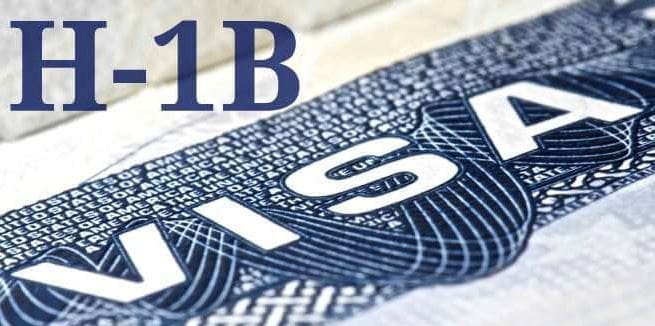By Tom Still
 MADISON, Wis. – The hurried deployment of National Guard troops to America’s southern border is aimed at stemming a possible surge of illegal immigrants.
MADISON, Wis. – The hurried deployment of National Guard troops to America’s southern border is aimed at stemming a possible surge of illegal immigrants.
If only the same kind of urgency surrounded the need to keep documented aliens working inside the United States, where they’ve been educated and expressed a desire to stay.
The national application period for H-1B visas, which is a federal program for high-skilled immigrants, opened and closed within five days in early April. With a static cap of 65,000 annual applications, the H-1B program is limited by law and further constricted by the fact that only about a third of those applications are selected for further processing through a lottery.
The H-1B is one of the few programs that allow foreign-born innovators, such as engineers and computer scientists, to stay in the country and begin the path toward citizenship. And yet, it takes dumb luck to qualify.
Supply is too tight. Congress should increase the H-1B visa cap while creating other pathways for allowing highly skilled workers, as well as graduates of Wisconsin colleges and universities, to stay in the United States and contribute to its overall competitiveness.
Sometimes that means working for large companies; sometimes in means starting companies, as many immigrants living in Wisconsin have done over time.
It makes little sense to accept foreign-born students in our colleges and universities, grant them advanced degrees – and promptly send them home to compete against us. Perhaps every graduate degree should come with a “green card” attached.
The need for talent is more acute in states such as Wisconsin, which, for largely demographic reasons, is on the cusp of a labor shortage in many sectors.
Whether it’s dairy and agriculture, information technology, construction, tourism or manufacturing, virtually every part of the Wisconsin economy employs foreign-born workers. About 6 percent of the state’s workforce is foreign-born, and the percentage of immigrant workers in sectors such as the dairy industry has been pegged at 50 percent or more.
A steady stream of reports and events has underscored the need for workers in Wisconsin.
- Gus Faucher, senior vice president and chief economist of The PNC Financial Services Group, told the Wisconsin Bankers Association in January that most signs point to a longer U.S. economic expansion – with the noteworthy exception of worker supply. That’s true in many states but more so in Wisconsin, he said, due to its low in-migration rate.
- A new report on Wisconsin’s place in the advanced energy sector predicted the state could add 44,000 jobs a year, many of them tied to the production of sensors and controls. One of the drawbacks, the report noted, could be the supply of workers to fill those jobs.
- Representatives of the New York-based Markle Foundation, which supports skill training and coaching projects, recently toured Wisconsin to size up what’s being done to develop the workforce. At every stop, they were told by business leaders, academics and government officials that Wisconsin needs more workers now and for decades to come.
Consider this statement: “… Even if we are able to retrain Wisconsin’s entire unemployed population and match them with available jobs, we will still fall well short of filling the projected 925,000 jobs created or replaced between 2008 and 2018. This is because our working age population already peaked in 2010 and is projected to continue declining through at least 2035.”
That’s from a 2014 report to Gov. Scott Walker from a working group headed by Tim Sullivan, the former Bucyrus-Erie chief executive officer who was asked to study Wisconsin’s workforce needs. The conclusion: Legal immigration is good for the U.S. economy and Wisconsin shouldn’t miss the chance to attract talent it needs to remain competitive.
The H-1B program has its flaws because of “visas mills” in some part of the world that have rigged the system, but they’ve been exposed and fixes are proposed. Comprehensive reform is needed, of course, and it remains to be seen if Congress would consider such a bill in an election year.
One hope for compromise has a Wisconsin angle: Speaker Paul Ryan. Now that he’s announced he won’t run for re-election, Ryan may be free to pursue an agenda that includes reform. He’s on record as saying, “We need to enable employers to hire foreign graduates of American universities. That way, they will use their American education for the betterment of the United States – not foreign competitors.”
Sending troops to the border is a short-term answer. The long-term solution is a system that works.
Still is president of the Wisconsin Technology Council. He is the former associate editor of the Wisconsin State Journal.


